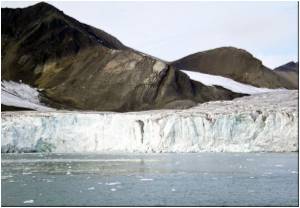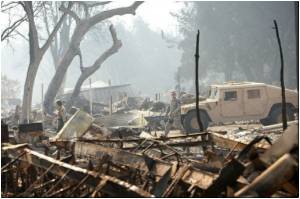
As wildfires increase in frequency and size along Alaska's North Slope, the team contends the disturbances may release large amounts of the greenhouse gas CO2 to the atmosphere and accelerate the transformation of the frozen, treeless tundra of today into a different kind of ecosystem less capable of storing carbon.
Together, the impacts could have profound implications on atmospheric carbon and climate.
In 2007 the Anaktuvuk River fire ravaged a 40-by-10 mile swath of tundra - the largest ever recorded in the region.
While the Anaktuvuk River fire scorched only upper soil layers that are about 50 years old, it caused the release of more than two million metric tons of CO2 to the atmosphere.
This amount is similar in magnitude to the annual carbon sink for the entire Arctic tundra biome averaged over the last quarter of the twentieth century.
Advertisement
"A key question is whether the conditions on these burn sites are more favorable for the establishment of new seeds, new species," Shaver said.
Advertisement
Source-ANI









